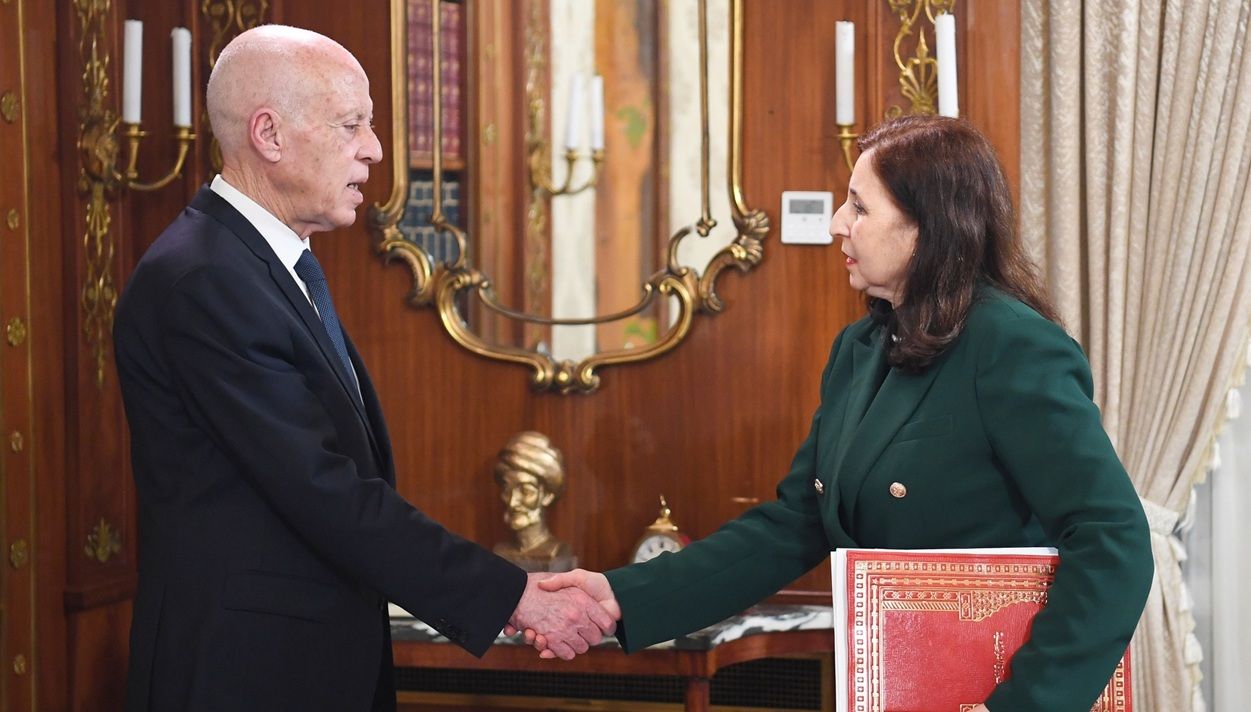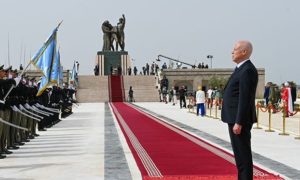On Monday, April 14, 2025, President Kais Saïed received Prime Minister Sarra Zaafrani Zenzri at the Carthage Palace to evaluate the state of several public services in Tunisia, amid a wave of national grief and emotion.
During the meeting, the President reaffirmed that the legislative revolution underway—part of what he calls “the battle for national liberation”—cannot accomplish its goals without the involvement of responsible leaders who embody a true spirit of struggle, sacrifice, and dedication.
This solemn reminder comes in the wake of a deeply shocking tragedy: the death of several students following the collapse of a dilapidated wall at a school in the city of Mazzouna, in the governorate of Sidi Bouzid. The wall, which had long shown signs of weakness, suddenly collapsed, even though it had withstood a 4.0 magnitude earthquake that occurred on February 17.
With a tone of bitterness, President Saïed emphasized that such walls “do not need committees or experts,” but rather must be entirely rebuilt from the ground up. He condemned administrative inaction, indecision, and a lack of foresight as key contributors to the tragedy. He stressed that it’s not just the legislation that needs reform, but also public management practices and administrative mindsets.
In response to the tragedy, Saïed ordered that anyone who failed in their duties be held accountable, calling for responsibility to be established without delay. He also issued clear instructions to prevent such accidents from occurring again, urging that renovation and maintenance work be expedited in all educational institutions showing signs of deterioration.
The President’s statement—delivered in a firm and resolute tone—is aimed at ending administrative impunity and reminding all that the safety of students, and of citizens in general, depends first and foremost on the vigilance and responsiveness of the State in managing public infrastructure.
As Tunisia continues to reform its legislative and institutional frameworks, the President’s call for a revolution in thinking serves as a warning to officials: no reform can be truly effective without a profound change in administrative culture.
What's happening in Tunisia?
Subscribe to our Youtube channel for updates.















































